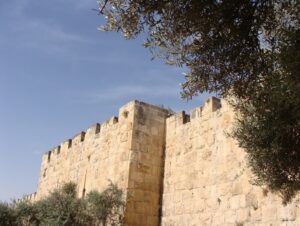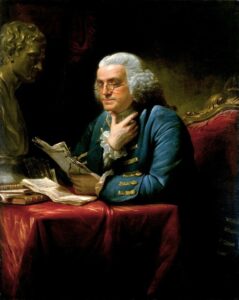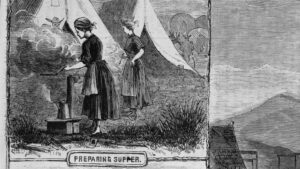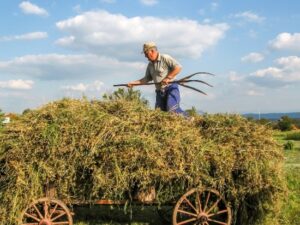Biblical Definition of Hard Work
The idea of work is first found in the book of Genesis. In the opening passage, God is the primary worker, busy with the creation of the world (Genesis 1:1-15). The Bible states that God worked for six days and rested on the seventh day. These passages reveal that God was the first to do work on the earth. Thus, legitimate work reflects the activity of God. Because God is good, work is also good (Psalm 25:8; Ephesians 4:28). Furthermore, Genesis 1:31 declares that, when God viewed the fruit of His labor, He called it “very good.”
Something requiring a lot of effort, either physical, mental, or emotional is “hard work.” When God looked at the quality of His work, He determined that He had done a good job. He took pleasure in the outcome. From God’s example, work should be productive. Work must produce the highest quality outcome. The reward for work is the honor and satisfaction that comes from a job well done.
In response to Adam’s sin, God pronounced several judgments in Genesis 3:17-19, the most severe of which is death. Labor and the results of labor were also affected by God’s judgments. God cursed the ground. Work became more difficult. Humankind must now toil at work. This implies a challenge, difficulty, exhaustion, and a constant struggle. Work itself was still good, but now humans are expected to do work by “the sweat of their brow.” Also, the results of work were no longer assured. Although humans were to eat the plants of the field, the field also produced thorns and thistles. Hard work and the corresponding effort were no longer rewarded in the way we desire.
In Ecclesiastes 2:4-11, Solomon details his search for meaning in life. He uses a variety of projects and works of all kinds. While the work brought some degree of satisfaction to Solomon, his conclusion was, “Yet when I surveyed all that my hands had done and what I had toiled to achieve, everything was meaningless, a chasing after the wind; nothing was gained under the sun.”
For work to be good, it must align with God’s purpose:
(Psalm 127:1-2)[ref[NIV New International Version Translations[/mfn] – “Unless the Lord builds the house, the builders labor in vain. Unless the Lord watches over the city, the guards stand watch in vain. In vain you rise early and stay up late, toiling for food to eat—for he grants sleep to those he loves.”
The benefit of hard work is profit:
(Proverbs 14:23) – “All hard work brings a profit, but mere talk leads only to poverty.”
The apostle Paul gives a church instruction about people who preferred not to work. It is to “keep away from every brother who is idle and does not live according to the teaching you received from us.” Paul also says, “For even when we were with you, we gave you this rule: ‘If a man will not work, he shall not eat.’” Instead, Paul instructs those who had been idle, “Such people we command and urge in the Lord Jesus Christ to settle down and earn the bread they eat” (2 Thessalonians 3:12).
Psalm 19 says that God reveals Himself to the world by His work. Through natural revelation, God’s existence is visible to every person on earth. Work also reveals something about the one doing the work. It exposes underlying character, motivations, skills, abilities, and personality traits. Jesus echoed this same principle in Matthew 7:15-20. He declared that bad trees produce only bad fruit and good trees only good fruit. It is by the good fruit that the world can see a picture of God’s righteousness, faithfulness, and excellence. It is by good fruit that the world will judge your hard work!
Example of Biblical Hard Work
In the 20th year of the reign of Artaxerxes I (around 445 BC) Nehemiah was cupbearer to the king of Persia. He learned that the remnant of Jews returning to Jerusalem after their exile were in trouble. Nehemiah was a Jewish. The walls of Jerusalem were broken down. Nehemiah asked the king for permission to return and rebuild the city’s walls. Artaxerxes held Nehemiah in high regard and could see his sadness. The king sent Nehemiah to Judah as governor of the province with a mission to rebuild the walls. He gave Nehemiah letters explaining the king’s support for the venture. The king also provided provisions of timber from the king’s forest. Once there, Nehemiah defied the opposition of Judah’s enemies on all sides. There were many enemies: Samaritans, Ammonites, Arabs, and Philistines. Nehemiah rebuilt the walls within 52 days.
 Walls for security are nothing new. From ancient times, cities located in the Middle East were surrounded by stone walls with gates that were guarded for the protection of the citizens. However, the importance of walls was to enforce the use of “gates.” Until 1887, each gate would be closed before sunset and opened at sunrise. The gates today are: Jaffa Gate; Zion Gate; Dung Gate; Golden Gate (now walled up); Lion’s Gate; Herod’s Gate; Damascus Gate; and the New Gate. The gates of the cities were also the “social media” of their time. Walls control access and regress points. People would gather at the gates where they would conduct the business of the city. Here, people could share important formation, or just pass the time. Anyone who was anyone had to pass through one of the gates providing access to the city of Jerusalem.
Walls for security are nothing new. From ancient times, cities located in the Middle East were surrounded by stone walls with gates that were guarded for the protection of the citizens. However, the importance of walls was to enforce the use of “gates.” Until 1887, each gate would be closed before sunset and opened at sunrise. The gates today are: Jaffa Gate; Zion Gate; Dung Gate; Golden Gate (now walled up); Lion’s Gate; Herod’s Gate; Damascus Gate; and the New Gate. The gates of the cities were also the “social media” of their time. Walls control access and regress points. People would gather at the gates where they would conduct the business of the city. Here, people could share important formation, or just pass the time. Anyone who was anyone had to pass through one of the gates providing access to the city of Jerusalem.
In the 70 years prior, the walls had been severely damaged. Strong walls and working gates were necessary to have a functioning city and society in Jerusalem again. Nehemiah was a layman, not a priest like Ezra nor a prophet like Haggai. He served the Persian king in a secular position before leading a group of Jews to Jerusalem to rebuild the city’s walls. Nehemiah’s experience in the king’s court equipped him for both the political and physical reconstruction necessary for Jerusalem to survive.
It would be by Nehemiah’s leadership and hard work that pulled the various factions together to accomplish their goal. Nehemiah led by example, giving up a respected position in a palace for hard labor. He was quite effective in convincing the city’s residents to “own their section of the wall” and work together as families to do the repairs. Nehemiah continued in his quest to rebuild Jerusalem. God provided all the necessary workers, and the building began. They would not be without enemies who tried to stop the project. But God intervened as He had done with Moses (Exodus 14:14). Nehemiah records,
(Nehemiah 4:20) – “Wherever you hear the sound of the trumpet, join us there. Our God will fight for us!”
It would also be Nehemiah’s humility before God that provided an example for the people. He did not claim glory for himself but always gave God the credit for his successes. This was God’s pre-ordained plan to bring His people out of bondage. Nehemiah’s goal was to have his people worship in the temple once again. Nehemiah would often, at the sight of distant enemies, walk in front of the broken walls of the city, wearing his sword. This was his subtle way of saying come if you dare but if you come, prepare to fight us. We can learn much from the life of Nehemiah. He maintained a personal relationship with His God. Nehemiah also partnered with Ezra, to solidify the political and spiritual foundations of the people.
(Nehemiah 8:18) – “Day after day, from the first day to the last, Ezra read from the Book of the Law of God. They celebrated the feast for seven days, and on the eighth day, in accordance with the regulation, there was an assembly.”
Nehemiah stands as a testament to faithfulness, perseverance, and hard work. He lived far away from his home, yet he never gave up hope that someday he would return to it. He spent most of his life in exile in a pagan land. Yet he never wavered in his faith and trust in the God of Abraham, Isaac, and Jacob. Nehemiah was a prayer warrior, putting everything before the Lord in prayer. He would intercede on behalf of his people, and he was rewarded for his diligence and perseverance. Nehemiah cared so much for his people that he never gave up the hope of their restoration. Not only restoration back to their homeland, but to the God that first called their forefather, Abraham. Nehemiah believed the covenant between his people and God would stand forever.
The book of Nehemiah shows us the significant impact one individual can have on a nation. Nehemiah served in secular offices, using his position to bring back order, stability, and proper focus on God. God can use all types of people from many different places and of differing skills. The secret to Nehemiah’s success and the success of any leader is the source of their motives.
Colossians 3:17) – “And whatever you do, whether in word or deed, do it all in the name of the Lord Jesus, giving thanks to God the Father through him.”
Ideas to Explore
Hard work is about mission work. This lesson would be a good place to find a person in need whose home is in disrepair. Work with your group to raise funds for materials. Seek out donations, do a car wash and then plan a day for the work. Fixing up a yard, painting a home (inside and/or outside), fixing things that are broken should all be on the list of possible things to do. Bring your lunch, plenty of water, even your own cleaning and paper supplies. Haul away the trash and leave knowing that someone received a gift from the hard work of your team.
Example of Historical Hard Work
 Benjamin Franklin (1706-1790) led a life of hard work. He was creative, ambitious, and thrifty. All Franklin’s success came by the way he organized his life and maximized his productivity. His impact on America was huge!
Benjamin Franklin (1706-1790) led a life of hard work. He was creative, ambitious, and thrifty. All Franklin’s success came by the way he organized his life and maximized his productivity. His impact on America was huge!
Franklin was the 15th of 17 children born to Josiah Franklin, a candlemaker. He was given only two years of formal schooling. Franklin supplemented his knowledge by his constant love to read. He was an avid swimmer from a very young age. Throughout his life he promoted its healthful benefits. At the age of 11 he invented a pair of swim fins. But, unlike today’s foot flippers, these were attached to his hands. His advocacy for swimming was recognized in 1968 by his induction into the International Swimming Hall of Fame. Benjamin Franklin was a competent swim coach and teacher. He advised people on water safety, lifeboat rescue escape from shipwrecks, and the need for universal learn-to-swim classes.
Franklin sought to cultivate his character by a plan of 13 virtues which he developed at age 20 (in 1726). The list below would form his beliefs for the rest of his life. His autobiography lists his 13 virtues as:
- “Temperance. Eat not to dullness; drink not to elevation.”
- “Silence. Speak not but what may benefit others or yourself; avoid trifling conversation.”
- “Order. Let all your things have their places; let each part of your business have its time.”
- “Resolution. Resolve to perform what you ought; perform without fail what you resolve.”
- “Frugality. Make no expense but to do good to others or yourself; i.e., waste nothing.”
- “Industry. Lose no time; be always employ’d in something useful; cut off all unnecessary actions.”
- “Sincerity. Use no hurtful deceit; think innocently and justly, and, if you speak, speak accordingly.”
- “Justice. Wrong none by doing injuries, or omitting the benefits that are your duty.”
- “Moderation. Avoid extremes; forbear resenting injuries so much as you think they deserve.”
- “Cleanliness. Tolerate no uncleanliness in body, clothes, or habitation.”
- “Tranquility. Be not disturbed at trifles, or at accidents common or unavoidable.”
- “Chastity. Rarely use venery [pursuit of sexual activity] but for health or offspring, never to dullness, weakness, or the injury of your own or another’s peace or reputation.”
- “Humility. Imitate Jesus and Socrates.”
 Franklin began his pursuit of adult life at age 17 by creating a printing business. Franklin was successful. He was able to retire early and pursuit his many ideas:
Franklin began his pursuit of adult life at age 17 by creating a printing business. Franklin was successful. He was able to retire early and pursuit his many ideas:
- As an inventor, Franklin created the lightning rod, the glass harmonica, the Franklin stove, bifocal glasses, and the flexible urinary catheter.
- As an author, he penned the Poor Richard’s Almanack, his famous autobiography, and many classic essays. Franklin even wrote a manual on distance swimming techniques.
- As a thinker he established the Junto, a political group in 17th-century Britain. His ideas would bring forth the first subscription library and the formation of the American Philosophical Society.
- As an organizer, he founded many civic organizations, including the Library Company, Philadelphia’s first fire department, and the University of Pennsylvania.
- As a scientist, Franklin made important investigations into the nature of electricity.
- As a diplomat, he served his country, state, and city as a councilman, postmaster, recruiter of the Pennsylvania militia, Speaker of the Pennsylvania State House, delegate to the Second Continental Congress, ambassador to France, and President of Pennsylvania.
- And Benjamin Franklin is best known as one of our Founding Fathers. He helped draft the Declaration of Independence and was one of its signers. He represented the United States in France during the American Revolution. Franklin was a delegate to the Constitutional Convention.
Yet, one of his most important contributions to our country can be summarized in this short story.
Franklin was walking out of Independence Hall after the Constitutional Convention in 1787, when someone shouted out, “Doctor, what have we got? A republic or a monarchy?” To which Franklin supposedly responded, with a rejoinder at once witty and ominous: “A republic, if you can keep it.”
The quote does not appear in any of Franklin’s writings. It is not found in the transcripts of the convention debate. None of the contemporaneous newspaper accounts mentioned it. It is most probably a legend. Yet, one of the most important contributions made at the Constitutional Convention is that America is not a democracy, but a constitutional republic.
In both a republic and a democracy, citizens are empowered to take part in a representational political system. They elect people to represent and protect their interests in how the government functions. Republics and democracies both provide a political system in which citizens are represented by elected officials who are sworn to protect the people’s interests. In a pure democracy, laws are made by the voting majority leaving the rights of the minority unprotected. In a republic, laws are made by representatives chosen by the people and must comply with a constitution that specifically protects the rights of the minority from the will of the majority. An official set of fundamental laws, like the U.S. Constitution and Bill of Rights, prohibits the government from limiting or taking away certain “inalienable” rights of the people. That protection exists even if that government was chosen by most of the people. In a pure democracy, the voting majority has almost limitless power over the minority.
Benjamin Franklin had eight grandchildren. His son William had one son, William Temple Franklin. And daughter Sarah Franklin Bache had seven children: Benjamin, William, Betsy, Louis, Deborah, Richard, and Sarah. During his later years Franklin’s health deteriorated. From 1785 to 1787 Franklin served as President of the Council of Pennsylvania. His last major appearance in public was during the Constitutional Convention which took place in Philadelphia in 1787. As representative of the State of Pennsylvania he had prepared a speech before the signing of the Constitution. However, he was too weak to deliver it. He let James Wilson, representative of Pennsylvania, read it for him.
Franklin had his first attack of pleurisy (lung infection or pneumonia) when he was 21. Eight years later he had a recurrence with an abscess on his left lung which left him susceptible to future attacks. At 44 he had his first gout attack. Later in life he suffered from repeated gout attacks and had a large bladder stone which confined him to bed.
Approximately 20,000 people attended his funeral. He was interred in Christ Church Burial Ground in Philadelphia. In 1728, aged 22, Franklin wrote what he hoped would be his own epitaph: “The Body of B. Franklin Printer; Like the Cover of an old Book, Its Contents torn out, And stript of its Lettering and Gilding, Lies here, Food for Worms. But the Work shall not be wholly lost: For it will, as he believ’d, appear once more, In a new & more perfect Edition, Corrected and Amended By the Author.” Franklin’s actual grave, however, as he specified in his final will, simply reads “Benjamin and Deborah Franklin“.
Ideas to Explore
Lessons about Benjamin Franklin are a perfect time to take two key events in Revolutionary history and bring them together into a “cause and effect” lesson. Franklin was a signer of the Declaration of Independence. The Declaration justified the independence of the United States by listing 27 colonial grievances against King George III and by asserting certain natural and legal rights, including a right of revolution. The first part of this lesson should be to identify, list and discuss the 27 grievances. Make sure that they are understood. It is the grievances against a tyrannical king that led to war, the creation of the Constitution and the Bill of Rights.
At a minimum, the first articles of the Bill of Rights should be discussed and understood. What caused their creation, how do they protect the rights of the citizen, and why they are still necessary today.
Examples of Historical Hard Work Occurring in Florida
The history of Florida after the Native American era is quite a bit more recent than most of the other states. It’s true we have St. Augustine, the oldest continuously occupied city in the United States. But development was slow after that historic founding in 1565. There would be a period of unrest called the Seminole Wars. Those hostilities commenced about 1816. They continued through 1858, with two periods of uneasy truce between active conflict. In 1821, Florida became a territory of the United States. This was done via treaty with Spain. Our hard work example for Florida goes to the pioneer women who were at the heart of the migration into Florida.
Women pioneers shared in the danger and the work of settling any new territory. Most of these women were wives and mothers. Some were single women with a few seeking homesteads, husbands, or new opportunities. Pioneer women not only helped to shape the future of Florida, but also earned new status for themselves and for women throughout the United States. Women were expected to do the work they had done back home. Added to their day was also the task of traveling 15 to 20 miles a day.
 They cooked, washed clothes, and took care of the children. Meals were simple while travelling, bacon and bread. Cooking was hard, using small portable stoves. Many lived in tents while they travelled. Pioneers had to make their own clothes, from animal skins. If sheep were available, they would spin the wool into thread. Then weaving the thread into fabric, and finally, fashioning it into a garment. Once a family had reached their destination, a house would need to be built. Because of Florida’s oppressive heat in the summer, much of this work was often done in the winter. At the first sign of spring, a garden would need to be planted. The women did much of this work themselves and with very few tools. The pioneer women were strong and great role models for the children.
They cooked, washed clothes, and took care of the children. Meals were simple while travelling, bacon and bread. Cooking was hard, using small portable stoves. Many lived in tents while they travelled. Pioneers had to make their own clothes, from animal skins. If sheep were available, they would spin the wool into thread. Then weaving the thread into fabric, and finally, fashioning it into a garment. Once a family had reached their destination, a house would need to be built. Because of Florida’s oppressive heat in the summer, much of this work was often done in the winter. At the first sign of spring, a garden would need to be planted. The women did much of this work themselves and with very few tools. The pioneer women were strong and great role models for the children.
The death toll on the trail was high. Disease was the worst killer. Accidents were also common. People drowned crossing rivers. Indian attacks were not all that rare in Florida. At least not that rare until after the end of the Seminole Wars. There was always a sense of danger. By the end of each family’s journey, each woman had a story to tell. The hardships of the trail brought out strengths and abilities they did not know they possessed. Once they settled, it would be the women who created schools, churches, libraries, literary societies, and charitable groups. They would create communities around the homesteads established by their husbands. Most towns and places in Florida (other than Pensacola and St. Augustine) were settled in the years just before and after the Civil War. Before then, Florida was a barren state that many people considered to be uninhabitable.
Ideas to Explore
A visit to Barberville Pioneer Settlement is truly a unique experience. The historical village is nestled within a charming, moss-draped oak hammock in western Volusia County. It offers self-guided tours or can provide each visitor or group with a guided tour of the structures within their expansive campus. Here, people will learn what life was like in rural Florida in the bygone days of the late 19th and early 20th centuries. People make history. Florida was expanding at the turn of the Twentieth Century. Step back in time when settlers had to be self-reliant. Visitors will experience many of the skills needed to survive as a pioneer in Florida. Activities may include candle making, weaving, spinning, blacksmith and/or woodworking demonstrations, butter making and a visit to the Farm. Come and meet some of the citizens during that time. You may encounter a teacher, tradesman, tourist, logger, homemaker, and farmer.
Practicing Acts of Hard Work
This would be a perfect place to add mission work to any program.

